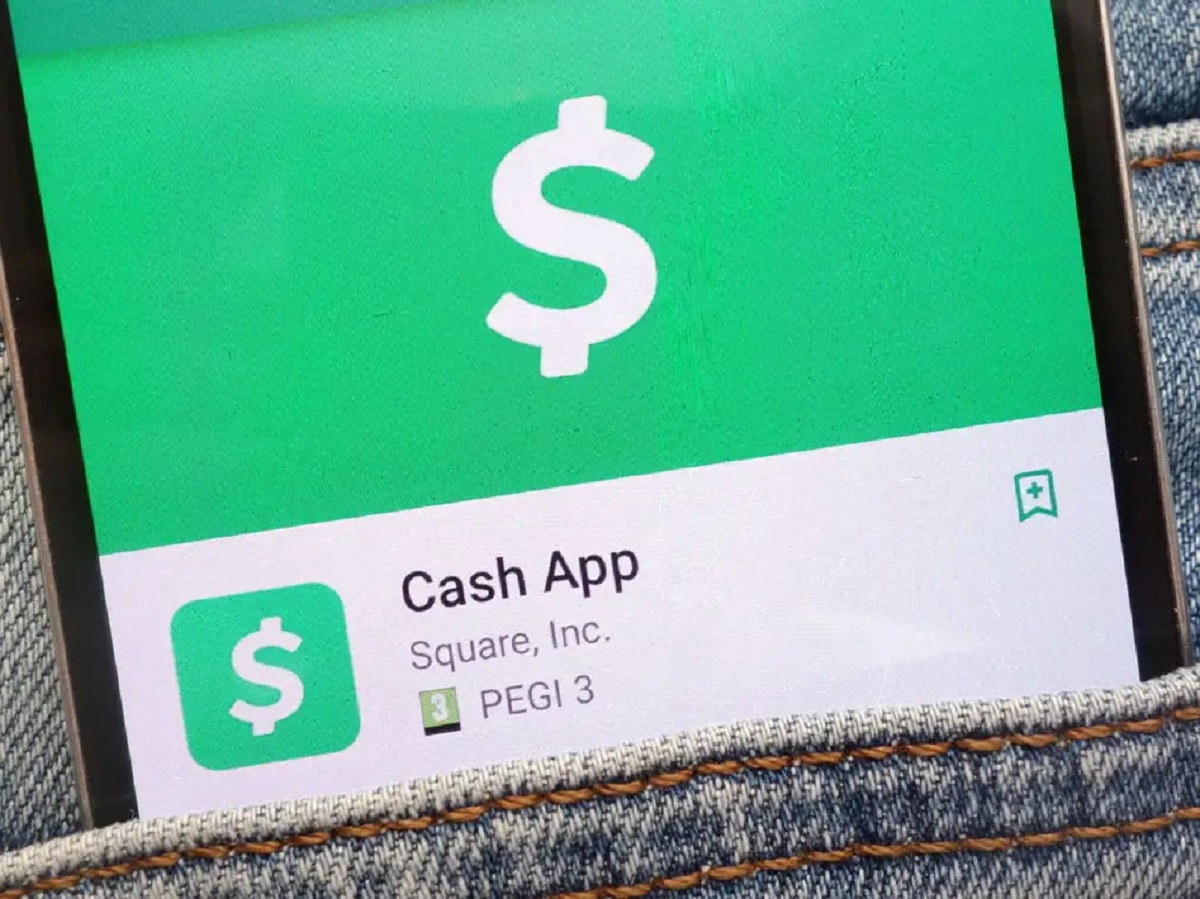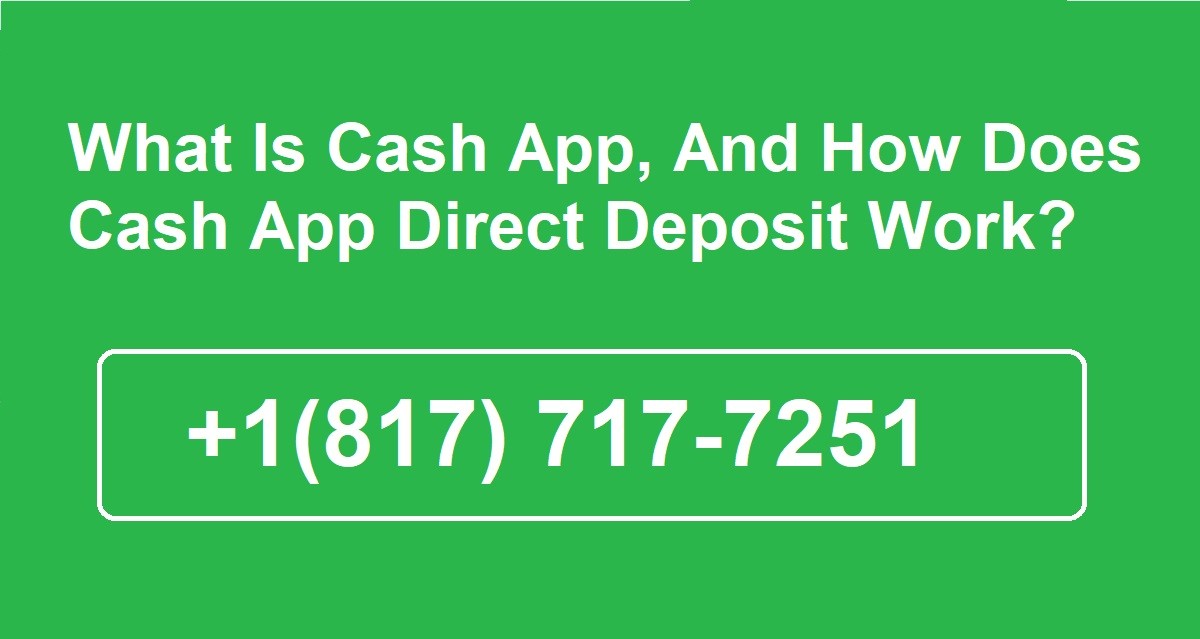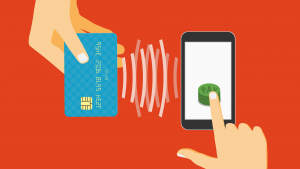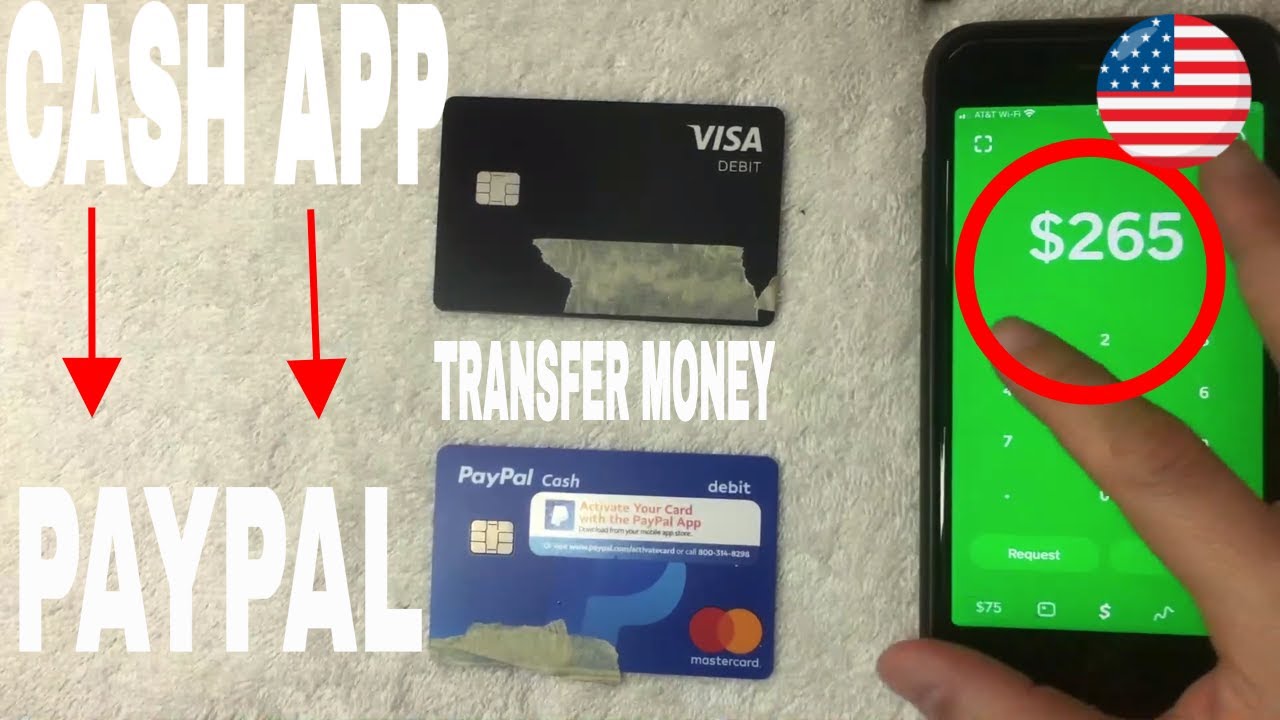Cash App: A Quick Overview
Cash App is a popular peer-to-peer payment service that allows users to send and receive money using their mobile devices. Developed by Square, Inc., Cash App provides a convenient and secure way to transfer funds instantly. With its user-friendly interface and various features, Cash App has gained popularity among individuals and businesses alike.
One of the key advantages of Cash App is its simplicity. Users can easily link their bank accounts, credit or debit cards, and even Bitcoin wallets to their Cash App account. This allows for seamless transfers of funds between different sources. Additionally, Cash App offers features like a Cash Card, which functions as a physical debit card that can be used for in-store and online purchases.
Another standout feature of Cash App is its accessibility. It is available for both iOS and Android devices, making it widely accessible to smartphone users. Whether you need to split a bill with friends, send money to family members, or make payments for goods and services, Cash App provides a quick and hassle-free solution.
Apart from its convenience, Cash App also boasts strong security measures. It utilizes encryption technology to protect users’ financial information and employs two-factor authentication for added account security. As a result, users can have peace of mind knowing that their transactions are secure and their personal data is protected.
In terms of popularity, Cash App has rapidly grown in recent years, with millions of users relying on the platform for their payment needs. Its increasing use by businesses, freelancers, and individuals highlights its versatility and reliability as a payment service.
Overall, Cash App offers a straightforward and efficient way to send and receive money. With its user-friendly interface, wide accessibility, and robust security measures, it has become a popular choice among individuals and businesses alike. Whether you need to pay a friend, split a bill, or make online purchases, Cash App provides a convenient solution to meet your financial needs.
Sending Money with Cash App
Sending money with Cash App is a breeze. Whether you want to pay back a friend, send money to a family member, or reimburse someone for shared expenses, Cash App provides a seamless platform for hassle-free transactions.
To send money, all you need is the recipient’s Cash App username, email address, or phone number. Simply open the Cash App on your mobile device, enter the amount you wish to send, and select the recipient’s preferred contact information. Once you confirm the details, the funds will be instantly deducted from your Cash App account and transferred to the recipient’s account.
One of the advantages of using Cash App is that there are no fees for sending or receiving money from friends and family within the same country. This makes it an attractive option for those looking to avoid transaction fees that are typically associated with other payment platforms.
Cash App also offers the option to add a note to your transactions, allowing you to provide context or a description for the payment. This can be helpful, especially when recording shared expenses or business transactions.
In addition to sending money to individuals, Cash App also supports transactions with businesses. Many online retailers and local businesses accept Cash App as a payment method, providing users with more flexibility and convenience when making purchases.
It’s important to note that Cash App does have transaction limits in place. These limits vary depending on whether you have a personal account or a verified business account. For personal accounts, the transaction limit is typically lower, but users have the option to verify their account to increase these limits. Verified business accounts, on the other hand, have higher transaction limits right from the start.
In summary, Cash App provides a quick and straightforward way to send money to friends, family, and businesses. With its user-friendly interface, no-fee policy for personal transactions, and additional features like transaction notes, Cash App delivers a convenient and reliable platform for sending money securely and effortlessly.
Transaction Limits for Personal Accounts
When using Cash App, it’s important to be aware of the transaction limits that apply to personal accounts. These limits dictate the maximum amount of money you can send or receive within a specified period of time. Understanding these limits will help you plan your transactions accordingly and avoid any surprises.
For unverified personal accounts, Cash App imposes certain limitations. These limits can vary based on factors such as your account history, activity level, and the information you have provided. Initially, the maximum amount you can send within a week is $250. This includes both individual payments and payments made through multiple transactions.
However, Cash App provides an option to increase these limits by verifying your account. Verifying your account involves providing your full name, date of birth, and the last four digits of your Social Security number. Once verified, your weekly sending limit may increase, allowing you to send larger amounts of money.
To verify your account, you can navigate to the “Profile” tab within the Cash App and select “Personal.” From there, follow the instructions to provide the necessary information and complete the verification process. It’s worth noting that verifying your account may also unlock additional features and benefits, such as the ability to apply for a Cash Card or make international payments.
It’s important to keep in mind that Cash App also imposes limits on receiving money for unverified personal accounts. Initially, the maximum amount you can receive within a week is $1,000. This limit includes all incoming payments, regardless of the number of transactions.
To keep track of your sending and receiving limits, you can view your transaction history within the app by navigating to the “Activity” tab. This will allow you to monitor your usage and ensure that you stay within the allowed limits.
In summary, personal accounts on Cash App have initial transaction limits that can be increased by verifying your account. The limits for sending and receiving money vary depending on your account verification status. By understanding and adhering to these limits, you can make use of Cash App’s services while staying within the specified boundaries.
Transaction Limits for Business Accounts
If you are running a business and using Cash App as your preferred payment method, it’s important to be aware of the transaction limits that apply to business accounts. These limits determine the maximum amount of money you can send or receive within a specified period of time, providing you with a clear understanding of your business’s financial capabilities.
Business accounts on Cash App have higher transaction limits compared to personal accounts. By default, verified business accounts can send up to $7,500 per week. This limit applies to both individual payments and payments made through multiple transactions. Having higher sending limits allows businesses to handle larger transactions without any issues.
When it comes to receiving money, Cash App also provides higher limits for business accounts. By default, verified business accounts can receive up to $10,000 per week. This limit includes all incoming payments, regardless of the number of transactions. This higher receiving limit ensures that businesses can accept payments from customers or clients without any concerns about exceeding the allowed thresholds.
To create a business account on Cash App, you’ll need to provide additional information about your business during the verification process. This includes details such as your business name, type, and Employer Identification Number (EIN) or Social Security Number (SSN). Once your business account is verified, you’ll have access to the higher transaction limits for sending and receiving money.
Having higher transaction limits for business accounts allows you to conduct larger transactions and manage your business’s financial operations more effectively. Whether you need to pay suppliers or contractors, receive payments from customers, or handle other financial transactions, Cash App’s business account transaction limits provide the flexibility and scalability that your business needs.
It’s worth mentioning that even though the transaction limits for business accounts are higher, it’s still important to monitor your usage and ensure that you stay within the allowed limits. Keeping track of your transactions, especially large ones, will help you maintain financial control and avoid any potential issues.
In summary, business accounts on Cash App have higher transaction limits compared to personal accounts. Verified business accounts can send up to $7,500 per week and receive up to $10,000 per week. By providing the necessary information during the account verification process, you can take advantage of these higher limits and effectively manage your business’s financial transactions through Cash App.
Verifying Your Account to Increase Limits
Verifying your Cash App account is not only important for security purposes but also allows you to increase your transaction limits. By verifying your account, you provide additional information that strengthens your account’s credibility, which ultimately leads to higher sending and receiving limits.
To verify your Cash App account, you will need to provide personal information such as your full name, date of birth, and the last four digits of your Social Security number (SSN). Cash App uses this information to confirm your identity and ensure the security of your account.
To begin the verification process, open your Cash App and navigate to the “Profile” tab. From there, select the “Personal” option and follow the prompts to provide the required information. Cash App will guide you through the process, and you may also be asked to provide additional documentation for verification.
Once your account is verified, you will notice an increase in your transaction limits. For personal accounts, this means you can send larger amounts of money per week, allowing for more significant financial transactions. Verified business accounts also benefit from higher transaction limits, enabling smoother operations and larger payment acceptance.
It’s important to note that Cash App may take some time to review and process your verification request. During this time, it’s recommended to avoid attempting to increase your transaction limits by creating multiple accounts or engaging in suspicious activities. Such actions may lead to potential account restrictions or suspensions.
Remember, account verification is not only beneficial for increasing your transaction limits but also enhances the overall security of your Cash App account. By confirming your identity and providing accurate information, you are adding an extra layer of protection against unauthorized access and fraudulent activities.
In summary, verifying your Cash App account is crucial for increasing your transaction limits. By providing the necessary personal information and completing the verification process, you strengthen the trustworthiness of your account. This results in higher sending and receiving limits, allowing you to conduct more significant financial transactions securely and efficiently.
Sending Limits for Debit Cards
Cash App offers the flexibility to link your debit card to your account, allowing you to easily send money from your card to other Cash App users. However, it’s important to understand the sending limits that apply to debit card transactions.
By default, unverified Cash App accounts have a sending limit of $250 per week when using a linked debit card. This means that you can only send a maximum of $250 from your debit card within a seven-day period. This limit applies to both individual payments and payments made through multiple transactions.
To increase your sending limit for debit card transactions, you have the option to verify your account. Verifying your account involves providing additional personal information, such as your full name, date of birth, and the last four digits of your Social Security number (SSN). Once your account is verified, you may be able to enjoy higher sending limits for debit card transactions.
It’s important to note that the sending limit for debit card transactions is separate from the overall sending limit for your Cash App account. Even if you have an increased overall sending limit due to account verification, the sending limit for debit card transactions may still remain at $250 per week.
To view your current sending limits, open your Cash App, navigate to the “Profile” tab, and select “Personal.” From there, you will be able to see the specific limits applicable to your account, including the sending limits for debit card transactions.
If you need to send larger amounts of money, you may consider alternative payment methods, such as linking a bank account. Verified Cash App accounts with linked bank accounts typically have higher sending limits compared to debit card transactions.
In summary, the sending limit for debit card transactions on Cash App is set at $250 per week for unverified accounts. To increase this limit, you can verify your account by providing additional personal information. However, it’s important to remember that the sending limit for debit card transactions is separate from the overall sending limit for your Cash App account.
Receiving Limits for Debit Cards
When using Cash App, it’s important to be aware of the receiving limits that apply to debit card transactions. Understanding these limits will help you plan and manage your incoming payments accordingly.
By default, unverified Cash App accounts have a receiving limit of $1,000 per week when receiving funds to their linked debit card. This means that you can receive a maximum of $1,000 to your debit card within a seven-day period. This limit applies to all incoming payments, regardless of the number of transactions.
To increase your receiving limit for debit card transactions, you have the option to verify your Cash App account. Verifying your account involves providing additional personal information, such as your full name, date of birth, and the last four digits of your Social Security number (SSN). Once your account is verified, you may be eligible for higher receiving limits for debit card transactions.
It’s important to note that the receiving limit for debit card transactions is separate from the overall receiving limit for your Cash App account. Even if you have an increased overall receiving limit due to account verification, the receiving limit for debit card transactions may still remain at $1,000 per week.
To view your current receiving limits, open your Cash App, navigate to the “Profile” tab, and select “Personal.” Here, you will be able to see the specific limits applicable to your account, including the receiving limits for debit card transactions.
If you anticipate receiving larger amounts of money, you may consider alternative payment methods, such as linking a bank account. Verified Cash App accounts with linked bank accounts typically have higher receiving limits compared to debit card transactions.
In summary, the receiving limit for debit card transactions on Cash App is set at $1,000 per week for unverified accounts. To increase this limit, you can verify your account by providing additional personal information. However, it’s important to remember that the receiving limit for debit card transactions is separate from the overall receiving limit for your Cash App account.
Understanding Daily and Weekly Limits
When using Cash App, it’s important to be familiar with the daily and weekly limits that apply to your account. These limits dictate the maximum amount of money you can send and receive within a specified period and help you manage your transactions effectively.
Cash App sets both daily and weekly limits to ensure the security and stability of its platform. The daily limit refers to the maximum amount of money you can send or receive in a single day, whereas the weekly limit pertains to the maximum amount you can send or receive within a seven-day period.
For unverified personal accounts, the daily sending limit is typically $250, and the weekly sending limit is also $250. However, by verifying your account, you may have the opportunity to increase these limits. Verified personal accounts may have higher daily and weekly sending limits, providing more flexibility for larger transactions.
On the receiving side, unverified personal accounts have a daily receiving limit of $1,000 and a weekly receiving limit of $1,000. Just like the sending limits, verifying your account can potentially raise these limits as well. Verified personal accounts may have higher daily and weekly receiving limits, making it easier to receive larger payments.
It’s important to note that the daily and weekly limits are cumulative, meaning they include both sending and receiving activities. For example, if you send $100 and receive $100 in a day, it will count towards both your daily sending and receiving limits. Similarly, transactions made throughout the week will contribute to your weekly limits.
To view your current daily and weekly limits, you can navigate to the “Profile” tab in your Cash App and select “Personal.” Here, you will find information about your specific limits based on your account verification status.
Understanding and keeping track of your daily and weekly limits is vital for effectively managing your transactions on Cash App. By staying within these limits, you can ensure a smooth and hassle-free experience while using the platform for your financial needs.
In summary, Cash App imposes daily and weekly limits on sending and receiving money to maintain the security and stability of the platform. Understanding these limits is essential for managing your transactions and staying within the allowed thresholds. By verifying your account, you may have the opportunity to increase your daily and weekly limits, providing more flexibility for your financial activities.
Requesting Higher Limits
If you find that the default transaction limits on Cash App are not sufficient for your needs, you have the option to request higher limits. By requesting an increase in your limits, you can have greater flexibility in sending and receiving larger amounts of money.
To request higher limits on Cash App, you can reach out to their customer support team for assistance. You can contact them by navigating to the “Profile” tab in your Cash App and selecting “Support.” From there, you can browse through the various support topics or submit a specific request regarding your account limits.
When requesting higher limits, it’s important to provide relevant information and justification for the increase. Cash App may review your account history, transaction patterns, and other factors to assess your request. Providing clear and concise reasons can help demonstrate that the higher limits are necessary for your legitimate financial needs.
It’s worth noting that Cash App’s decision to grant higher limits is ultimately at their discretion. While they strive to accommodate user requests, they may have their own internal policies and considerations for granting limit increases. Therefore, it’s important to understand that approval is not guaranteed.
In addition to reaching out to Cash App’s customer support, you can also explore the option of verifying your account. Verifying your account by providing the necessary personal information can potentially lead to higher transaction limits. Cash App may view verified accounts as more trustworthy and reliable, which could increase your chances of having your limit increase request approved.
Lastly, it’s important to regularly review your account activity and ensure that you are utilizing your current limits responsibly and within the permitted guidelines. Demonstrating good account management and a track record of responsible usage can also positively influence Cash App’s decision when considering limit increase requests.
In summary, if the default transaction limits on Cash App are not sufficient for your needs, you can request higher limits by reaching out to their customer support. Provide relevant information and a compelling justification for the increase. Keep in mind that approval is not guaranteed, and Cash App may consider factors such as account history and verification status. Regularly reviewing and responsibly managing your account activity can also improve your chances of having a higher limit request approved.
Cash App Fees for Sending Money
One of the attractive features of Cash App is that it offers fee-free transactions for sending money to friends and family within the same country. This means that you can send money without incurring any fees when using your Cash App balance, linked bank account, or debit card. However, there are a few scenarios where fees may apply.
Cash App charges a fee of 3% for sending money using a credit card. This fee is applicable when you choose to fund a payment using your credit card instead of your Cash App balance, bank account, or debit card. It’s important to consider this fee before opting to use a credit card for your transactions.
Additionally, Cash App may apply fees for certain services such as instant transfers, where you can transfer funds from your Cash App balance to your linked bank account instantly. While Cash App offers instant transfers for a fee, standard transfers are typically free and may take one to three business days to process.
It’s important to note that Cash App may also charge fees for certain business transactions. If you are using Cash App for business purposes, such as receiving payments for goods or services, there may be fees associated with these transactions. It’s recommended to review Cash App’s business terms and conditions or contact their customer support for detailed information about applicable fees for business payments.
To help track any potential fees associated with your transactions, Cash App provides an activity feed within the app. This feed allows you to review all your transactions and clearly see if any fees were charged for a particular transaction.
It’s important to stay updated with Cash App’s fee policy, as it may change over time. The best way to stay informed about any updates is to regularly check their website or refer to the in-app notifications or emails from Cash App.
In summary, Cash App generally offers fee-free transactions for sending money to friends and family within the same country. However, fees may apply when using a credit card for transactions or for certain services such as instant transfers. For business transactions, additional fees may be applicable. Cash App provides an activity feed to help you monitor any fees charged for your transactions. To stay informed about the most up-to-date fee policy, it’s recommended to regularly check Cash App’s website and review in-app notifications and emails from Cash App.
Security Measures for Higher Transaction Limits
As you increase your transaction limits on Cash App, it’s important to prioritize the security of your account and financial information. With higher limits comes a higher level of responsibility to ensure the safety and protection of your funds. Cash App implements various security measures to safeguard your transactions and maintain the integrity of your account.
One of the key security measures implemented by Cash App is encryption. Cash App uses advanced encryption technology to protect your personal and financial information. This ensures that any data transmitted between your device and Cash App’s servers remains secure and cannot be intercepted by unauthorized parties.
To further enhance the security of your account, Cash App also offers two-factor authentication (2FA). With 2FA enabled, you will be required to enter a unique verification code in addition to your login credentials each time you access your account. This adds an extra layer of security and helps prevent unauthorized access to your account, even if someone has obtained your login credentials.
It’s important to use strong and unique passwords for your Cash App account. Avoid using common or easily guessable passwords, and consider using a password manager to generate and store complex passwords securely. Regularly updating your password and ensuring it is not shared with anyone are essential practices for maintaining account security.
Additionally, Cash App provides notifications and alerts to keep you informed about any account activity or potential security threats. These notifications can help you identify and address any suspicious activity promptly, allowing you to take necessary action to protect your account and funds.
If you ever suspect unauthorized access or fraudulent activity on your Cash App account, it is crucial to report it immediately to Cash App’s customer support. They have a dedicated team that can investigate and assist you in securing your account and recovering any potential losses.
Finally, it’s important to be cautious and vigilant when transacting on Cash App. Be wary of phishing scams or suspicious requests for your personal or financial information. Cash App will never ask for your password, Social Security number, or other sensitive details through email, text messages, or phone calls. If you receive any suspicious communications, it’s best to ignore and delete them.
In summary, as you increase your transaction limits on Cash App, it’s vital to prioritize the security of your account. Cash App employs encryption, two-factor authentication, and notification systems to enhance security measures. Using strong and unique passwords, staying updated with account activity, and promptly reporting any suspicious activity are essential practices for maintaining a secure Cash App account. Being cautious and vigilant about potential scams or fraudulent requests also plays a crucial role in protecting your account and funds.
Conclusion
Cash App offers a convenient and user-friendly platform for sending and receiving money. Whether you need to split bills with friends, pay back a family member, or make payments for goods and services, Cash App provides a seamless and secure solution.
Understanding the transaction limits for personal and business accounts is essential for managing your financial transactions effectively. By verifying your account, you can increase your transaction limits and enjoy greater flexibility in sending and receiving larger amounts of money.
While Cash App generally offers fee-free transactions for sending money to friends and family, it’s important to be aware of the applicable fees for certain services such as using a credit card or instant transfers. Regularly reviewing your account activity and being informed about any changes in the fee policy will help you track and manage your transactions more efficiently.
Cash App prioritizes the security of your account by implementing encryption, two-factor authentication, and providing notifications for account activity. Following best practices such as using strong passwords, promptly reporting any suspicious activity, and being cautious about potential scams will further enhance the security of your Cash App account.
Overall, Cash App provides a reliable and convenient platform for financial transactions. It offers flexibility, ease of use, and strong security measures. Whether you are an individual or a business, Cash App can meet your payment needs and empower you to manage your finances with confidence.

























